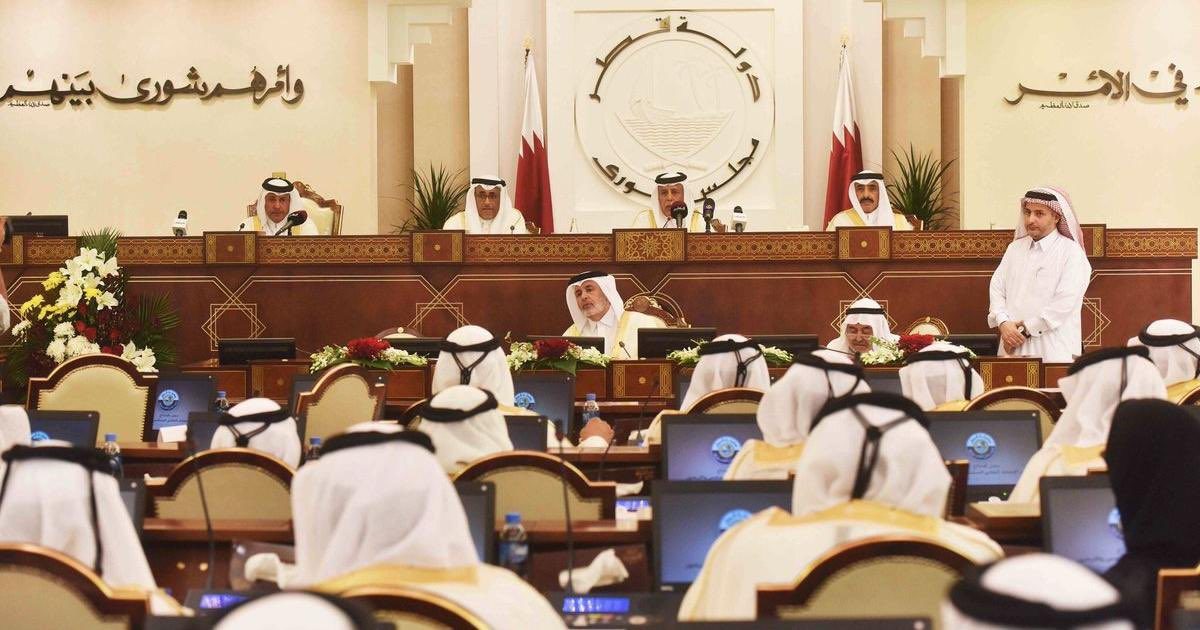Qatar’s Shura Council will hold its first-ever elections later this year, which experts say could promote more political participation.
On Wednesday, Qatar’s Cabinet approved a draft law with provisions concerning the Shura Council electoral system law that details the criteria needed to run for the first ever Shura Council elections in the Gulf state.
The monumental elections are set to be held in October this year and analysts believe the move will only propel political participation among the public in Qatar.
Following the elections, the Shura Council’s authority is expected to expand and may include the ability to dismiss ministers, approve the national budget and propose legislation.
Speaking to Doha News, Dr. Andreas Krieg, assistant professor at the School of Security Studies at King’s College London and researcher of Middle East and North African Studies, says Qatar’s civil society has greatly matured when it comes to active participation and expression of public opinion, and the Shura Council elections will surely be a catalyst to the mobilisation of the public.
#ShuraCouncil elections in #Qatar were only made possible by the #GulfCrisis as especially #Saudi had repeatedly put pressure in Doha pre-2017 to ensure that elections were not held as to calm expectations in the kingdom – Qatar has now become a more independent actor https://t.co/3p0IYxHfUb
— Dr Andreas Krieg (@andreas_krieg) May 19, 2021
“People in Qatar have become more politically active and mobilised and less apathetic than they were in the past. That necessarily also prepared the Qatari public to actually take part in elections,” said Krieg.
The Shura Council elections are the next step in allowing the Qatari public to take part in the political process, according to Krieg.
Read also: Qatar reveals draft rules for first of its kind Shura council elections
“What we’re seeing now is that the Shura Council will not only be elected and that way become more representative of the public, but we also see the legislative powers of the Shura council being expanded at the same time,” added Krieg.
Krieg also noted the changes in attitudes within Qatari civil society, where previous concerns and participation were mainly focused towards municipal affairs, such as traffic, for example.
However, following the 2017 Gulf crisis which saw Saudi Arabia, Bahrain, the United Arab Emirates and Egypt place a blockade on Doha, the public sphere began shifting its focus on expression and attention on the international environment in which Qatar exists.
“The Shura Council elections will be the first step in a process, a gradual process of more political liberalisation. However, we also need to manage expectations, Qatar is not going to turn overnight into a liberal democracy and that’s also not the intent,” added Krieg.
The upcoming vote will also act as a window into the demands of Qatar’s citizens, shedding light on attitudes towards domestic policies within the nation.
“The Shura council will play a very integral part of translating civil societal activism into a process rather than just looking on Twitter to see what people are saying, lets actually see what their representatives and the Shura council say on behalf of the people that they represent, and that’s a formalisation of a process, which is essential and important and very much valued by political leaders in Qatar because they think it’s important to also make better decisions in conjunction with what people want,” said the researcher and professor.
While civilians in Qatar move away from an apathetic view on societal and domestic affairs, the elections will be a test of how involved society will be in Qatar, with voter turnout playing as a benchmark of participation and a representation of how society feels about democratisation.
However, even if a low voter turnout is seen at the first-ever Shura Council elections, the process will only lead to more participation as time moves on and as more elections are held, according to Krieg.
Krieg attributes pressure from external neighbouring powers such as Saudi Arabia and the UAE as reasons for previous postponement of the elections.
However, with the 2017 blockade, Qatar no longer felt the need to inquire Saudi Arabia’s opinion, becoming more independent from its Gulf counterparts and shaking off cynicism from the neighbouring kingdom and the UAE by proceeding to carry out elections and liberties despite potential opposition from other GCC states.
For the elections to see success, Krieg emphasised the need to strengthen civic education in Qatar to provide the public sphere with knowledgable on how to participate in the Shura Council elections, while also highlighting the importance of participation.
“All the state can do is allow for it to happen and provide the framework for societal activism and political mobilisation to actually take place. When the state provides a framework from where people can actually develop this, then that’s all the state can do, and obviously the state needs to educate people,” said Krieg.
“Essentially it’s about how the people are educating themselves, mobilising and seeing what’s important for them and how this benefits them as well,” he added.
Follow Doha News on Twitter, Instagram, Facebook and Youtube







